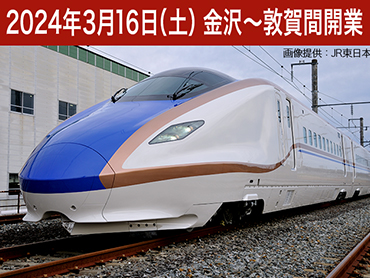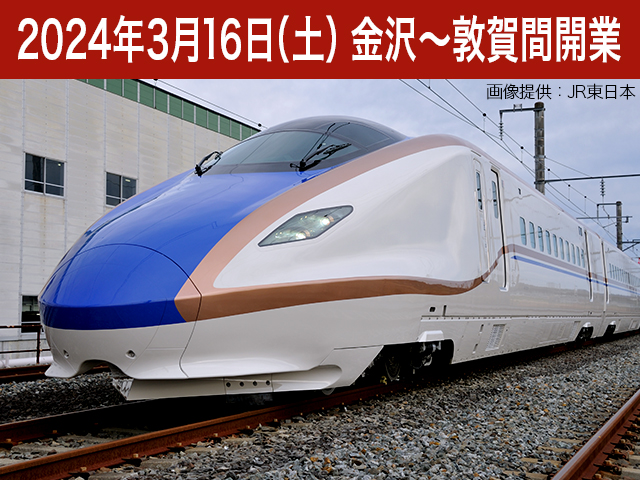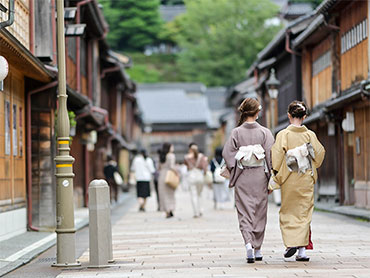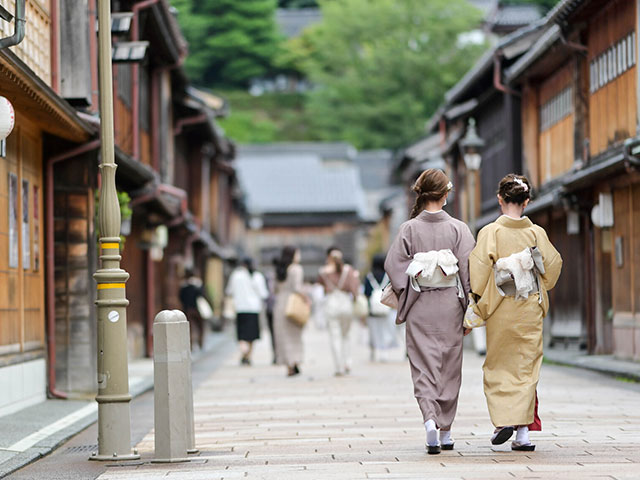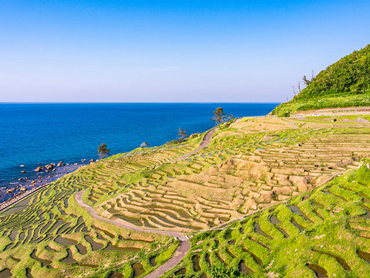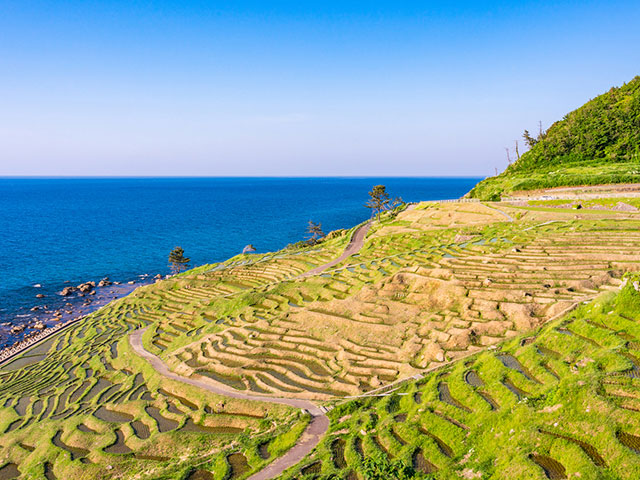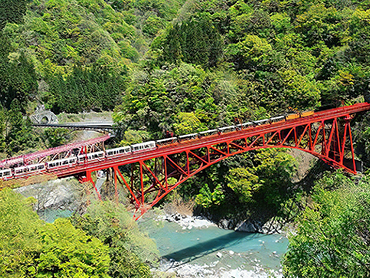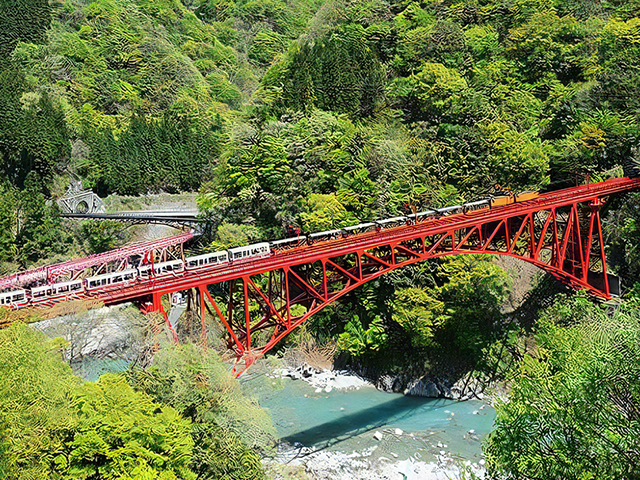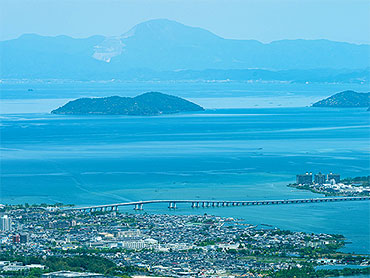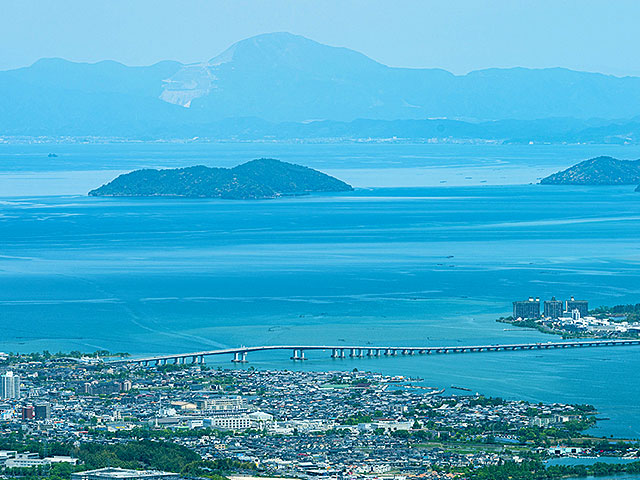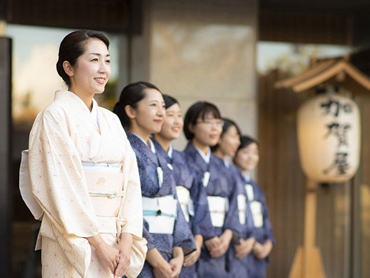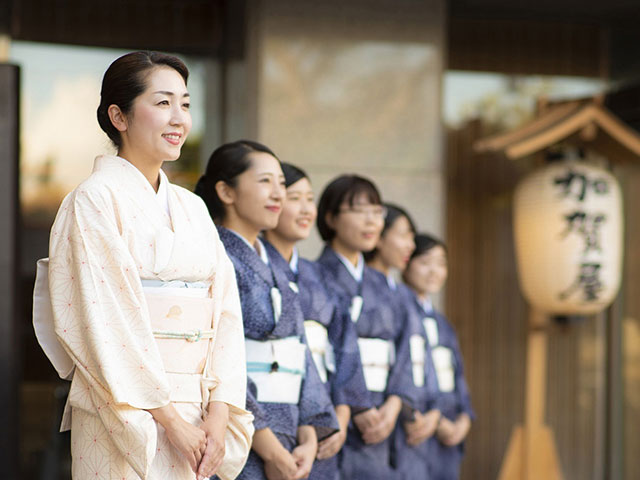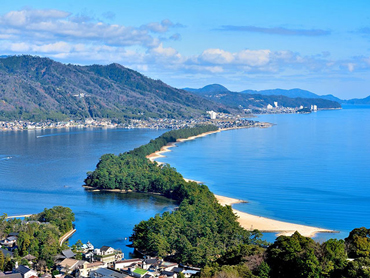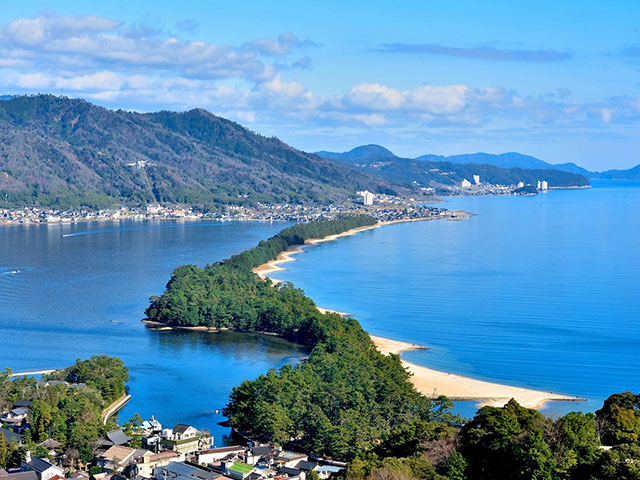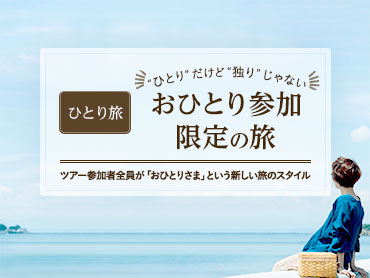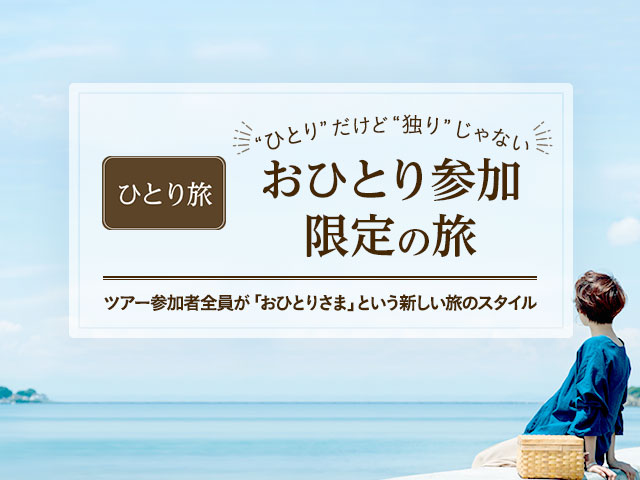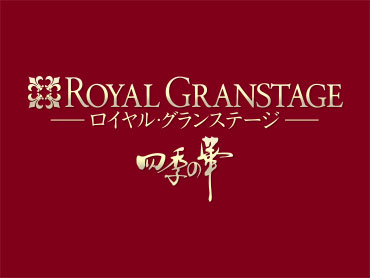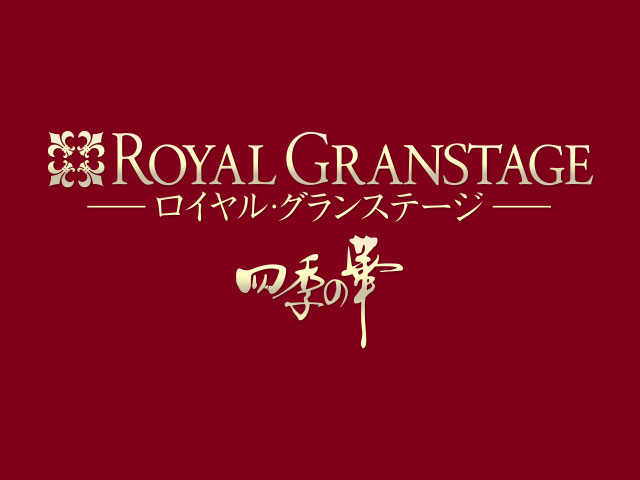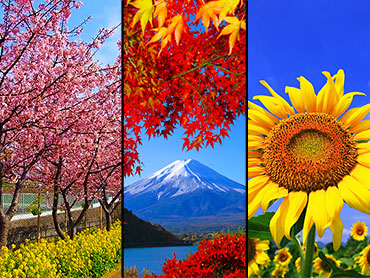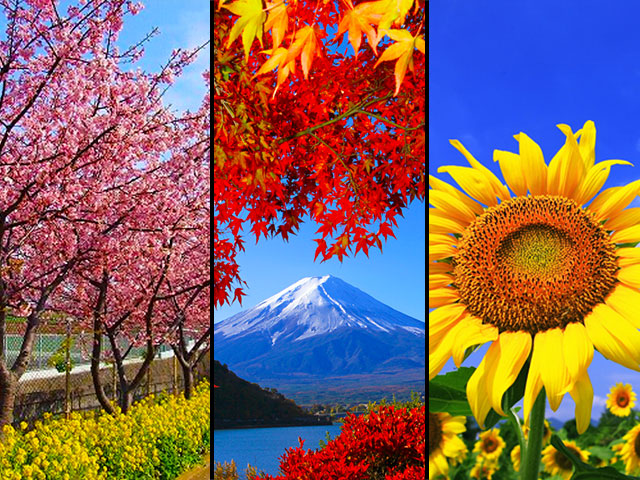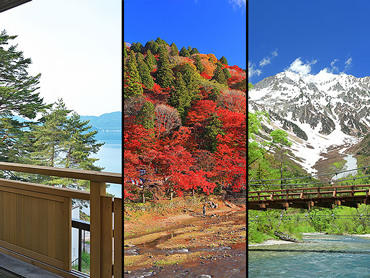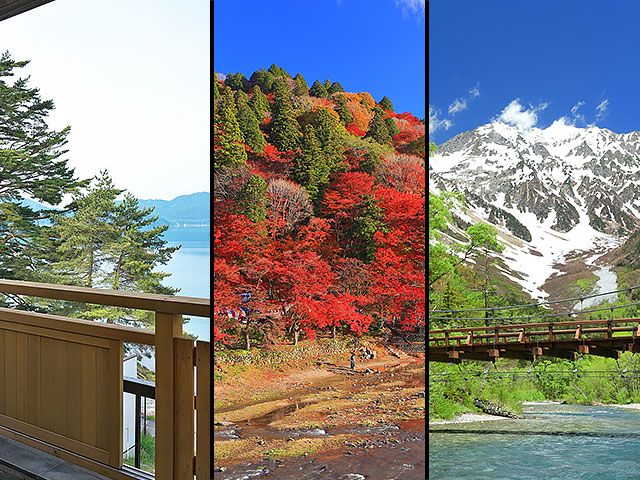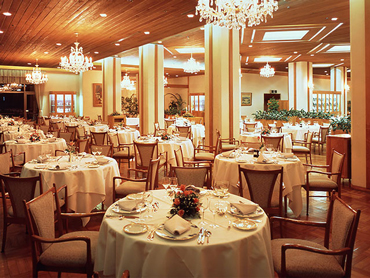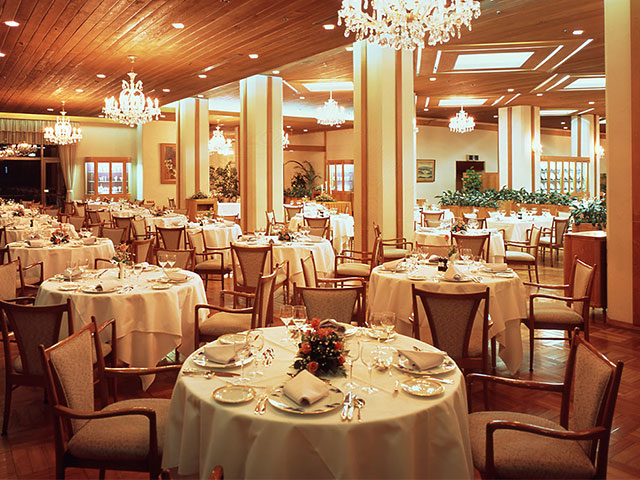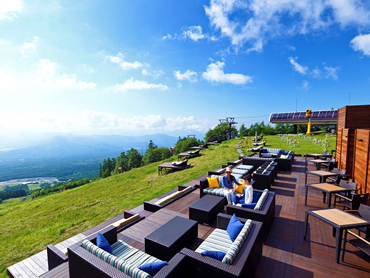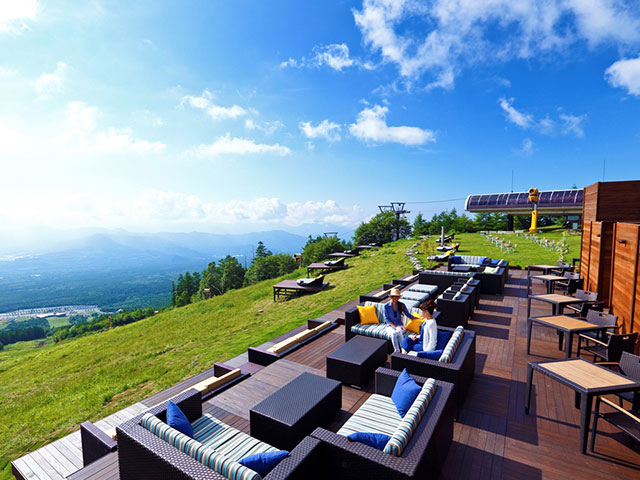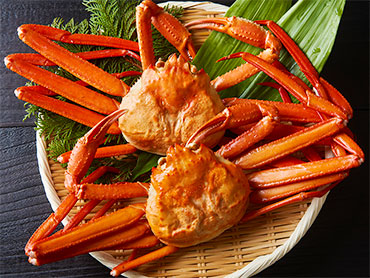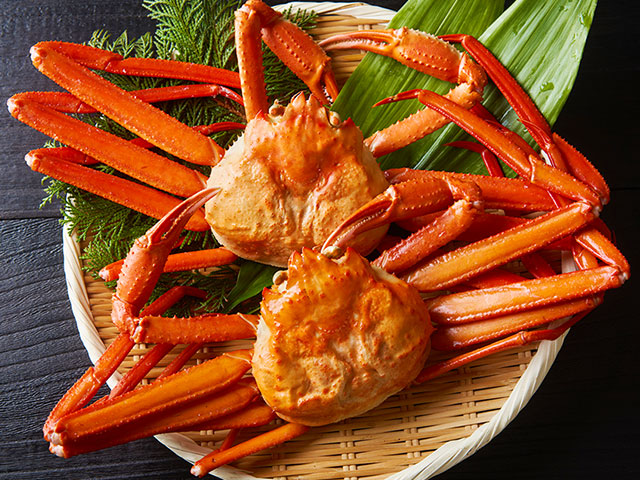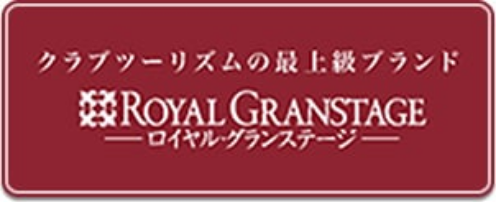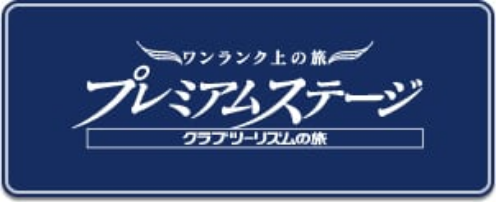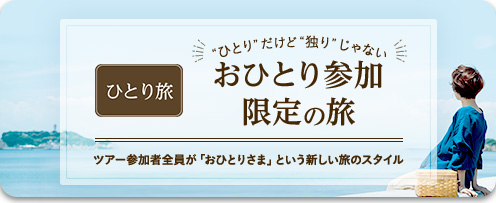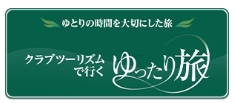Upscale Travel
Fukui-Prefecture Tours & Travel


Club Tourism 's Fukui Prefecture tours and trips! We provide thorough support with a tour guide. We introduce recommended tours and recommended spots to enjoy Fukui Prefectural Dinosaur Museum and Tojinbo. Take this opportunity to visit the charming Fukui Prefecture. Tour search and reservations are also easy.
Supporting the Hokuriku region through travel
Recommended tours using trains and planes
Recommended Tours For Eating "Echizen crab"
Recommended Tours To The Fukui Prefectural Dinosaur Museum
Recommended tours departing from Ibaraki
Club Tourism's top-class Domestic Travel
Royal Grand Stage Shiki-no-Hana: Premium Travel Experience Recommended Tours
Solo-Only Travel
Relaxed Adult Getaway
Mountain Climbing, Hiking and Walking Trips
Places To See In Fukui-Prefecture
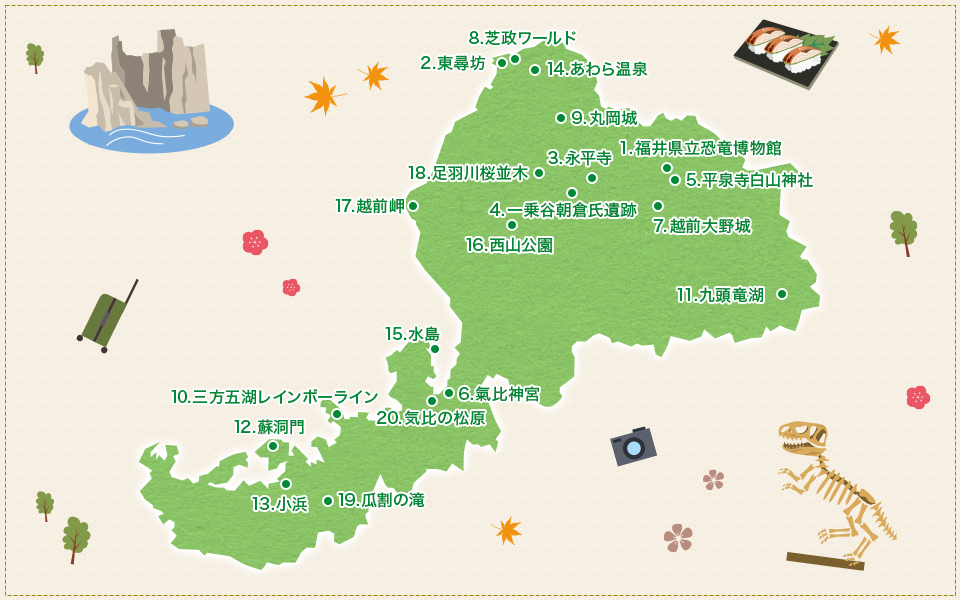
-
Fukui Prefectural Dinosaur Museum
-
Tojinbo
-
Eiheiji Temple
-
Ichijodani Asakura Clan Ruins
-
Hiraizumi Hakusan Shrine
-
Kehi Shrine
-
Echizen Ono Castle
-
Shibamasa World
-
Maruoka Castle
-
Mikatagoko Rainbow Line
-
Lake Kuzuryu
-
Sotomon
-
Obama
-
Awara Onsen
-
Mizushima
-
Nishiyama Park
-
Cope Echizen
-
Asuwa River Sakuranamiki
-
Uriwari Falls
-
Kehi Pine Grove
Fukui Prefectural Dinosaur Museum
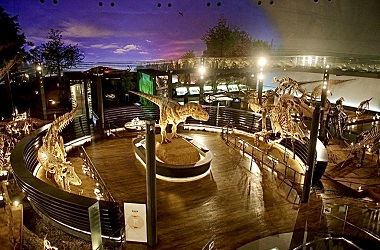
Fukui Prefectural Dinosaur Museum (Image)
After the reopening in the summer of 2023, the new wing will have new zones where you can experience the reality of dinosaurs, such as the "Large 3-Sided Screen" (excluding special exhibitions) that recreates the world of dinosaurs with powerful images, and the "Fossil Research Experience" where you can experience fossil research in real life! The permanent exhibition has also been greatly transformed!
Search for tours to this destination
*This service may not be available depending on Departure Place.
Tojinbo
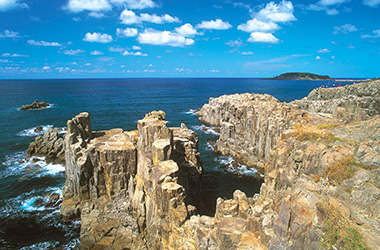
Tojinbo (Image)
Tojinbo, where columnar joints of rugged rock face stretch for 1 km, is designated as a national scenic spot and natural monument. The sight of the raging waves of the Sea of Japan crashing against the cliffs, which are over 20 meters high, is particularly impressive.
Search for tours to this destination
*This service may not be available depending on Departure Place.
Eiheiji Temple
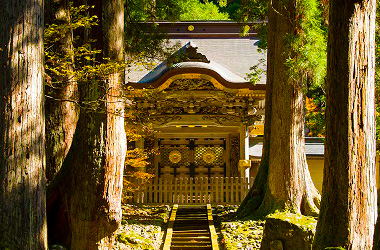
Eiheiji Temple (Exterior/ Image)
This Zen training dojo was opened by Zen Master Dogen in 1244. The temple grounds, nestled deep in the mountains and a secluded valley, are lined with over 70 buildings, of which the seven halls known as the Shichido Garan (lecture hall, Buddha hall, monk's hall, storage room, mountain gate, toilet, and bathhouse) are considered especially important as pure places where monks could train.
Search for tours to this destination
*This service may not be available depending on Departure Place.
Ichijodani Asakura Clan Ruins
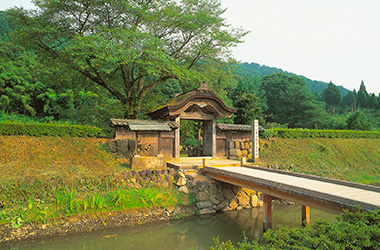
Ichijodani Asakura Clan Ruins (Image)
The Asakura Clan Ruins in Ichijodani, about 10km southeast of Fukui City, are the remains of a castle town where five generations of the Asakura clan ruled Echizen Province for 103 years during the Sengoku period. The entire townscape, including samurai residences, temples, town houses, craftsmen's residences and roads, has been excavated almost in its entirety, and it has been designated as an Important Cultural Property, Special Historic Site and Special Place of Scenic Beauty by the national government.
Search for tours to this destination
*This service may not be available depending on Departure Place.
Hiraizumi Hakusan Shrine
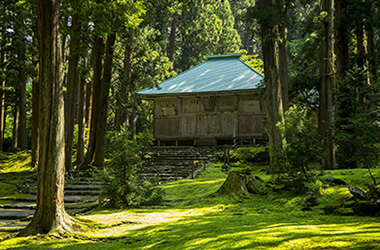
Hiraizumi Hakusan Shrine (Image)
It is said to have been founded by the great monk Taicho in the first year of the Yoro era (717), and became the base of worship of Mt. Hakusan in Echizen. The temple name was abolished due to the Shinto-Buddhist separation law of the Meiji era, and it is now Hakusan Shrine. The grounds are covered with beautiful green moss, and it is also called "Moss Palace" and "Moss Temple."
Search for tours to this destination
*This service may not be available depending on Departure Place.
Kehi Shrine
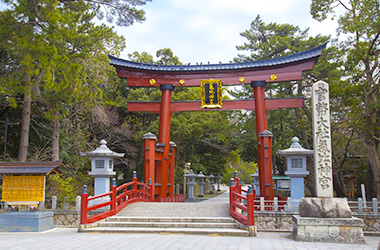
Kehi Shrine (Image)
This ancient shrine is also known as "Echizen Ichinomiya" and "Hokuriku-do no Soujinshi. The Otorii gate, which is said to have been built with muro (a wooden gateway) drifted ashore from Sadogashima, is one of the "Three Great Wooden Gateways of Japan" along with Hiroshima, Itsukushima Shrine, and Nara Kasuga Taisha, and is designated as a National Important Cultural Property of Japan.
Search for tours to this destination
*This service may not be available depending on Departure Place.
Echizen Ono Castle
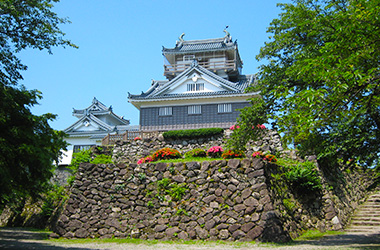
Echizen Ono Castle (Image)
Echizen Ono Castle was built by Kanamori Nagachika. The current castle was rebuilt in 1968, and inside the castle are exhibits of the belongings of the castle's past lords. Depending on the weather conditions, the entire Ono Basin can be enveloped in a sea of clouds, creating a fantastical scene in which only Echizen Ono Castle appears to be floating in the air. This has earned the castle the nickname "Castle in the Sky," and it has also been selected as one of Japan's Top 100 Castles.
Search for tours to this destination
*This service may not be available depending on Departure Place.
Shibamasa World
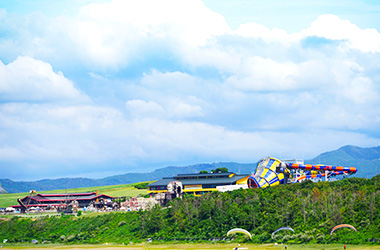
Shibamasa World (Image)
A huge theme park with numerous attractions spread across a vast area facing the Sea of Japan. In particular, the pool, which is one of the largest in Japan and opens in the summer, attracts many tourists from the Kansai and Chukyo regions.
Search for tours to this destination
*This service may not be available depending on Departure Place.
Maruoka Castle
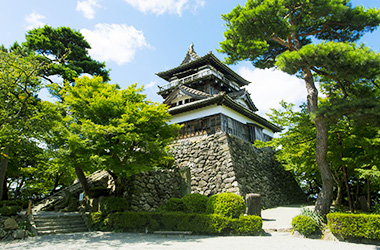
Maruoka Castle (Image)
Maruoka Castle was built in 1576 during the Sengoku period by Katsutoyo, the nephew of Shibata Katsuie. The castle tower (a designated Important Cultural Property by the national government) is one of 12 remaining castle towers, with a two-story exterior and a three-story interior, and is a freestanding watchtower-style tower. In spring, the approximately 400 Somei-Yoshino cherry trees, which have been certified as one of the "100 Best Cherry Blossom Spots in Japan," add to the beauty of the ancient castle, befitting its nickname of Kasumigajo.
Search for tours to this destination
*This service may not be available depending on Departure Place.
Mikatagoko Rainbow Line
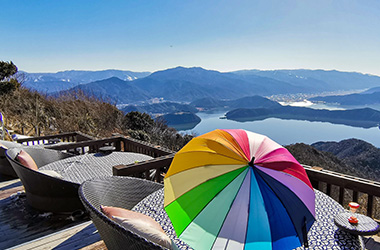
Mikatagoko Rainbow Line (Image)
This is an 11.24km road that stretches from Mihama to Wakasa Town. From the first parking lot, take the lift and cable car to the summit park, where you can enjoy a 360° panoramic view of the scenic Mikata Five Lakes and Wakasa Bay. The view from the five terraces, including the foot bath and sofa terrace, is truly spectacular!
Search for tours to this destination
*This service may not be available depending on Departure Place.
Lake Kuzuryu

Lake Kuzuryu (Image) *The best time to see the autumn leaves is usually from late Oct. to mid Nov..
Lake Kuzuryu is an artificial lake created by constructing a rockfill dam. The "Dream Bridge," which was built as a test case for the Great Seto Bridge, blends gracefully into the magnificent mountain scenery and the vast dam lake. Blessed with abundant nature, it shows off its beauty in every season.
Search for tours to this destination
*This service may not be available depending on Departure Place.
Sotomon
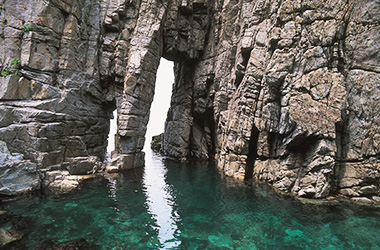
Sodomon (Image)
This sea cave on the northern coast of the Uchishiro-Uchiumi Peninsula is a work of art created by the rough waves of the Sea of Japan. Its beautiful cliffs stretching over 6km, strangely shaped rocks named Jigokumon, Amagakeiwa, Meoto Kameiwa, Shiraito Falls, Daimon and Komon, and other caverns create a magnificent landscape, making it one of the most scenic spots in Wakasa Bay Quasi-National Park.
Search for tours to this destination
*This service may not be available depending on Departure Place.
Obama
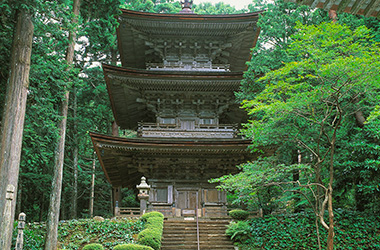
Obama・Myodoji Temple (Image)
Obama City, Fukui Prefecture, is known as "Nara by the Sea" and is an area with many old temples and ancient Buddha statues. Among them, Myozuji Temple is a historic temple surrounded by cedar trees, bathed in sunlight filtering through the trees, yet standing majestically and with the only national treasures in Fukui Prefecture, its main hall and three-story pagoda.
Search for tours to this destination
*This service may not be available depending on Departure Place.
Awara Onsen
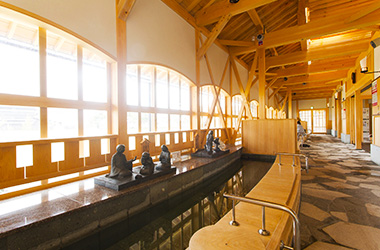
Awara Onsen foot bath (Image)
Awara is a representative hot spring town in Fukui Prefecture that opened in 1883 and is so elegant that it is called the "inner sanctum of Kansai." The atmosphere and spirit of Awara, which has been loved by many literary figures, still lives on in the hospitality of the area. Another feature is that there are 74 hot springs, and each inn has different hot spring quality and effects.
Search for tours to this destination
*This service may not be available depending on Departure Place.
Mizushima
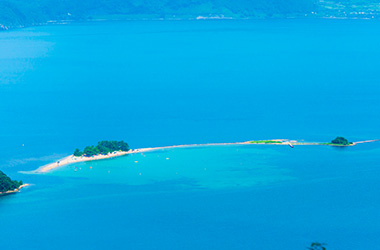
Mizushima (Image) *Available only from early Jul. to late Aug. each year
This small island at the tip of the Tsuruga Peninsula is surrounded by shallow sandy beaches and rocky areas, and you can fully enjoy the summer in the crystal clear blue sea.
Search for tours to this destination
*This service may not be available depending on Departure Place.
Nishiyama Park
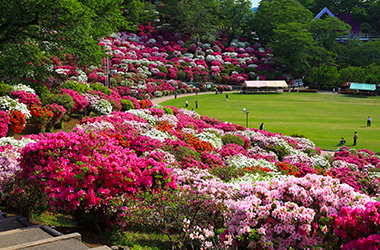
Azaleas at Nishiyama Park (Image) *The best time to see them is usually from late Apr. to early May..
Nishiyama Park, where about 50,000 azaleas bloom in profusion, is the best azalea spot on the Japan Sea coast. Every year in early May., the grand Azalea Festival is held. In addition, there are about 1,000 cherry trees, about 1,600 maple trees, and in winter, a silver world of hanging snow hanging from the trees, making it a place to be enjoyed throughout the year.
Search for tours to this destination
*This service may not be available depending on Departure Place.
Cope Echizen
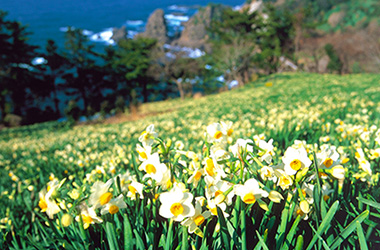
Echizen Cape_Echizen Daffodils (Image) *The best time to see them is usually from late Dec. to early Feb.
Located in the northernmost part of Echizen Town, this cliff juts out into the Sea of Japan, and is a scenic spot with many reefs formed by marine erosion. Known as a habitat for Echizen daffodils, the area is also home to a sea cave enshrining Tamagawa Kannon, the Yoborimon Gate formed by erosion, and Torichuiwa Rock, attracting many tourists.
Search for tours to this destination
*This service may not be available depending on Departure Place.
Asuwa River Sakuranamiki
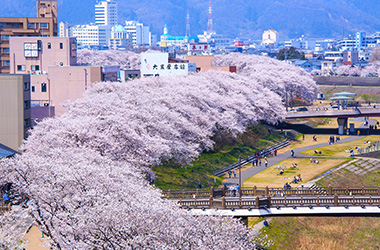
Cherry blossom trees along the Asuwa River (Image) *The best time to see the cherry blossoms is usually from late Mar. to early Apr..
The Asuwa River runs through the center of Fukui City. Along the bank (between Kida Bridge and Shin-Akari Bridge) there are about 600 cherry blossom trees lined for a total length of 2.2 km. In particular, around Kagetsu Bridge, large Somei-Yoshino cherry trees line both sides of the bank, and when they are in full bloom you can enjoy walking through a magnificent pink tunnel.
Search for tours to this destination
*This service may not be available depending on Departure Place.
Uriwari Falls
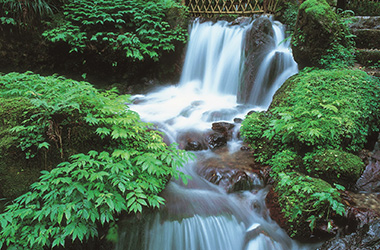
Tsumewari Falls (Image)
Uriwari Falls has been selected as one of Japan's 100 Best Waters. It was so named because the water is so cold that it can split a melon. The forest surrounding the falls is a fantastic sight, with sunlight filtering through the trees and moss growing on the rocks. The garden is home to 10,000 hydrangeas, cherry blossoms, maples, and other plants, providing a beautiful view of the changing seasons.
Search for tours to this destination
*This service may not be available depending on Departure Place.
Kehi Pine Grove
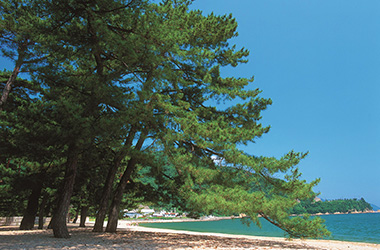
Kehi Pine Grove (Image)
Kehi no Matsubara, which spreads out at the innermost part of Tsuruga Bay, is a scenic spot of white sand and green pines. It is counted as one of the three most famous pine groves in Japan and has been designated a national place of scenic beauty.
Search for tours to this destination
*This service may not be available depending on Departure Place.
Easy online travel consultation
Customer Co-Creation Activities
Latest Tours and Information
Club Tourism Travel Brand
Overseas Travel
Club Tourism Internet Membership Information
-
A wide range of services exclusively available to members
-
Search for trips anytime, anywhere!
-
Be the first to know about the best seasonal travel deals!



